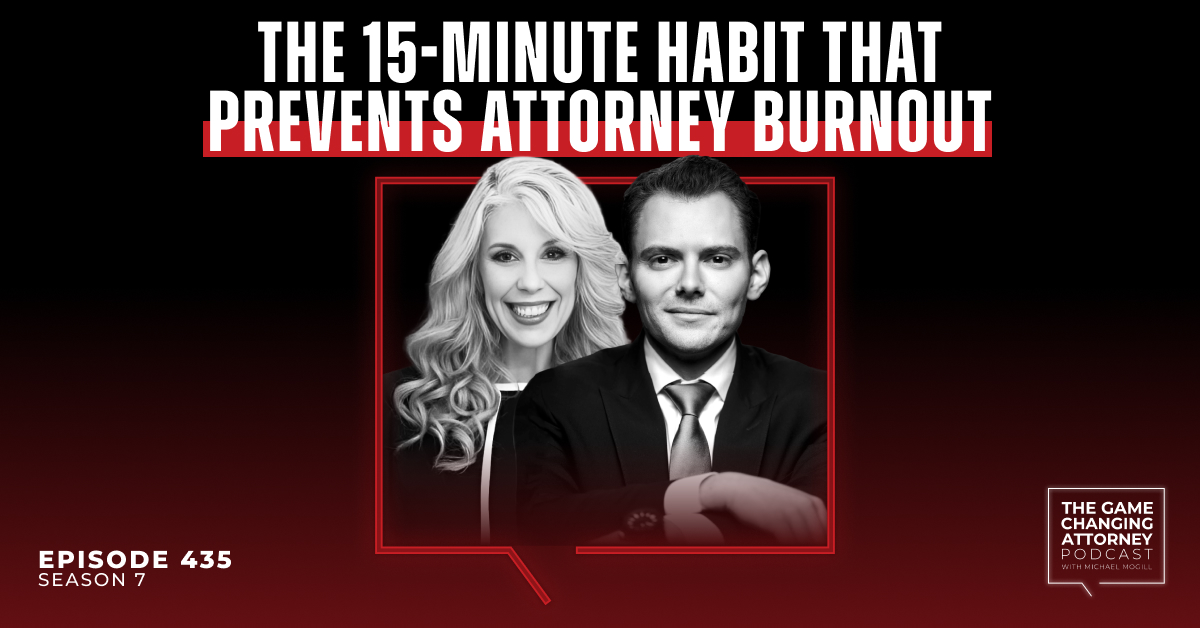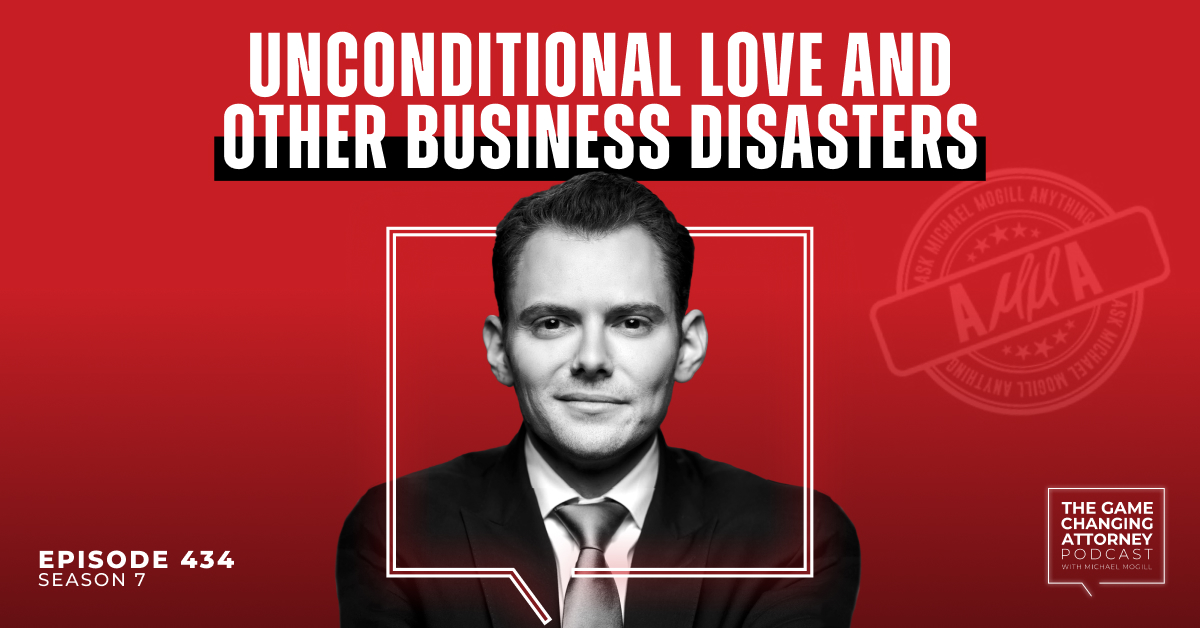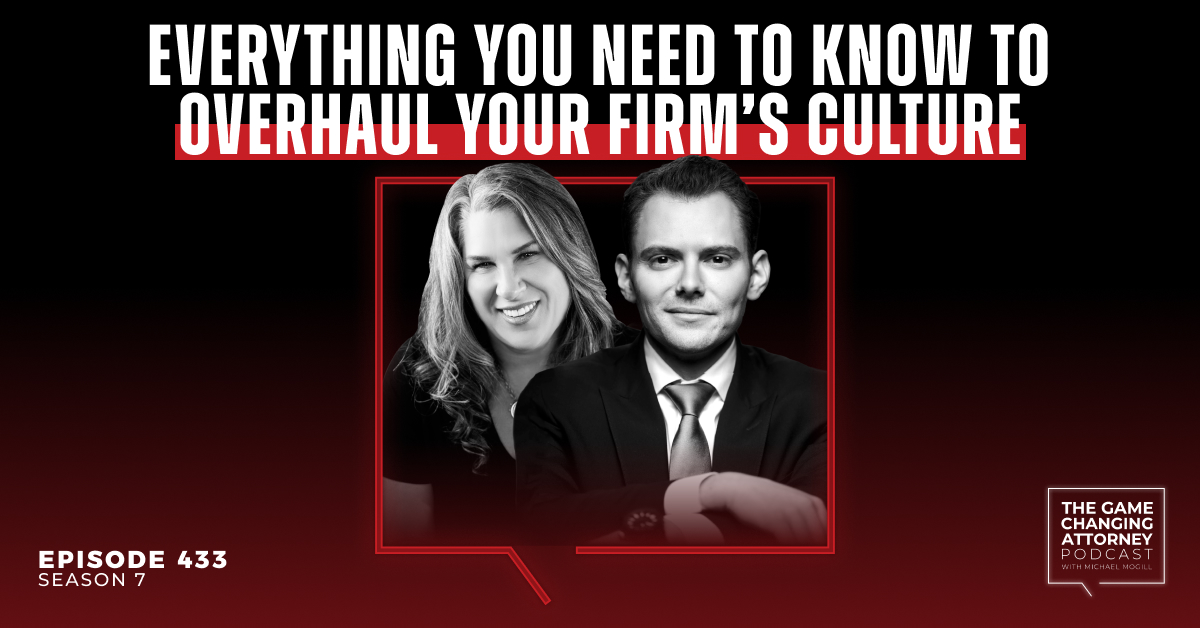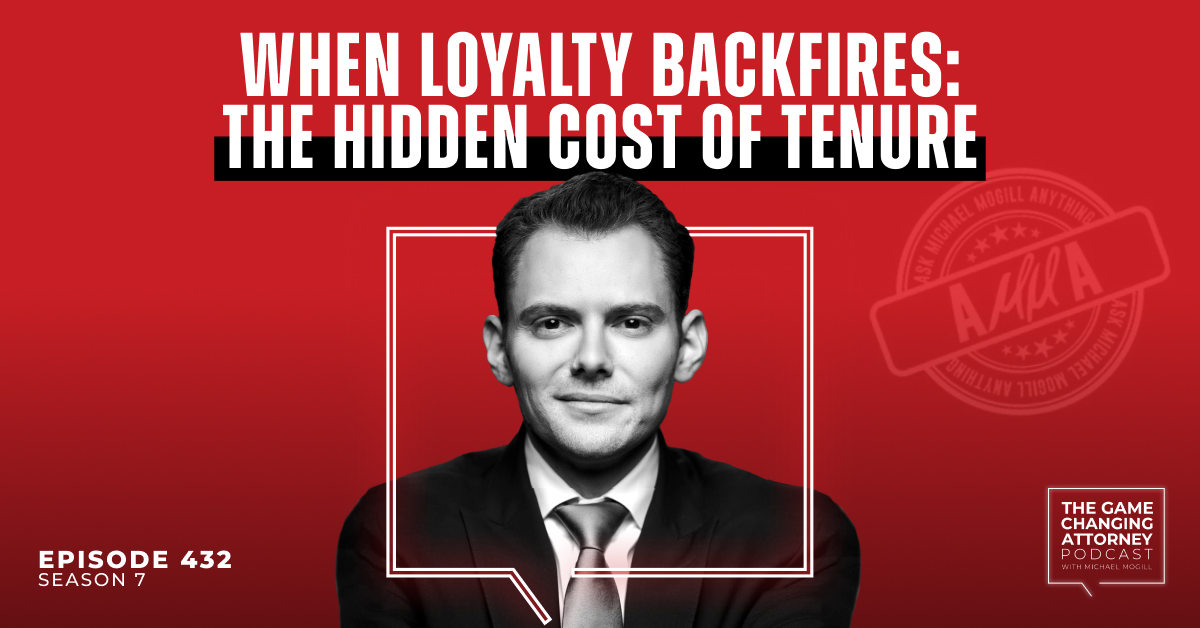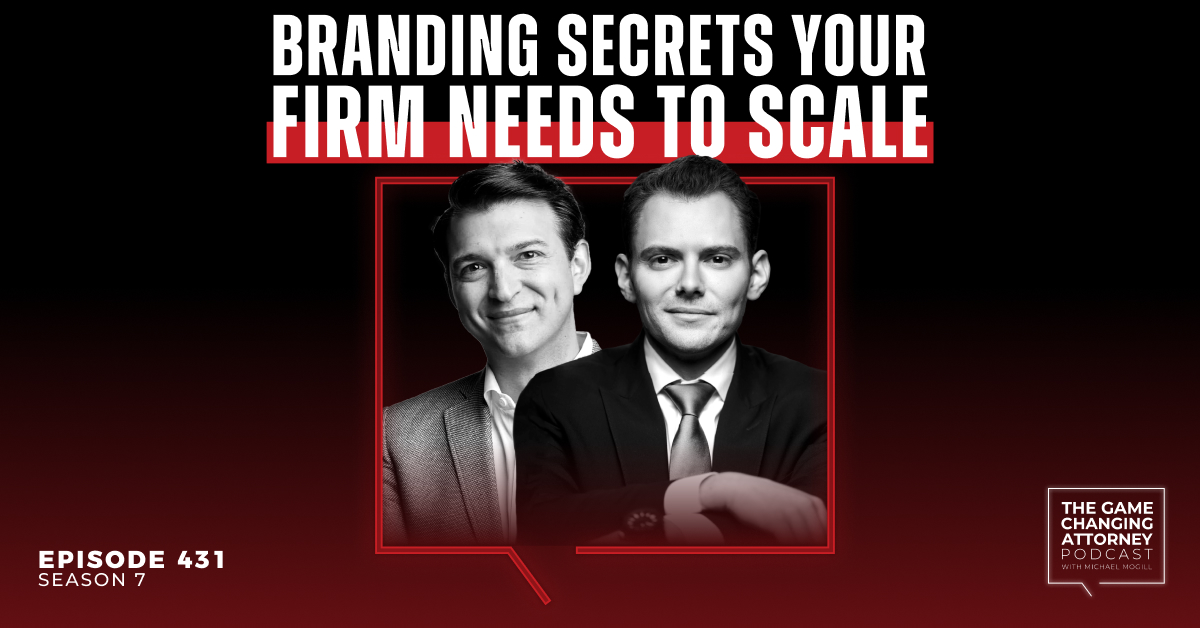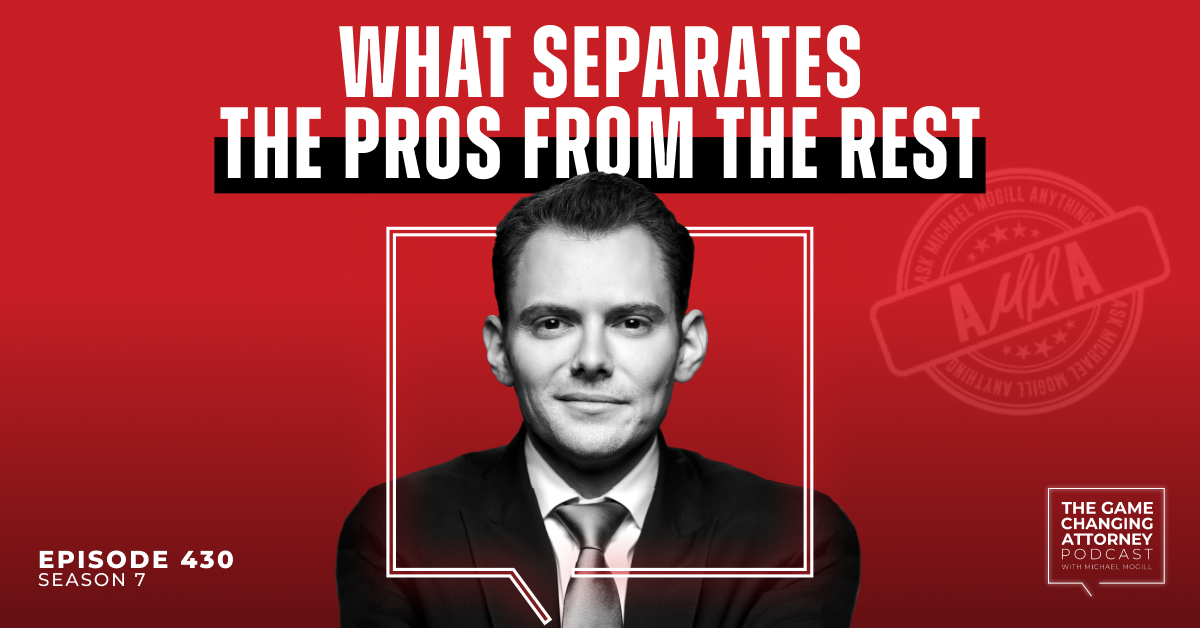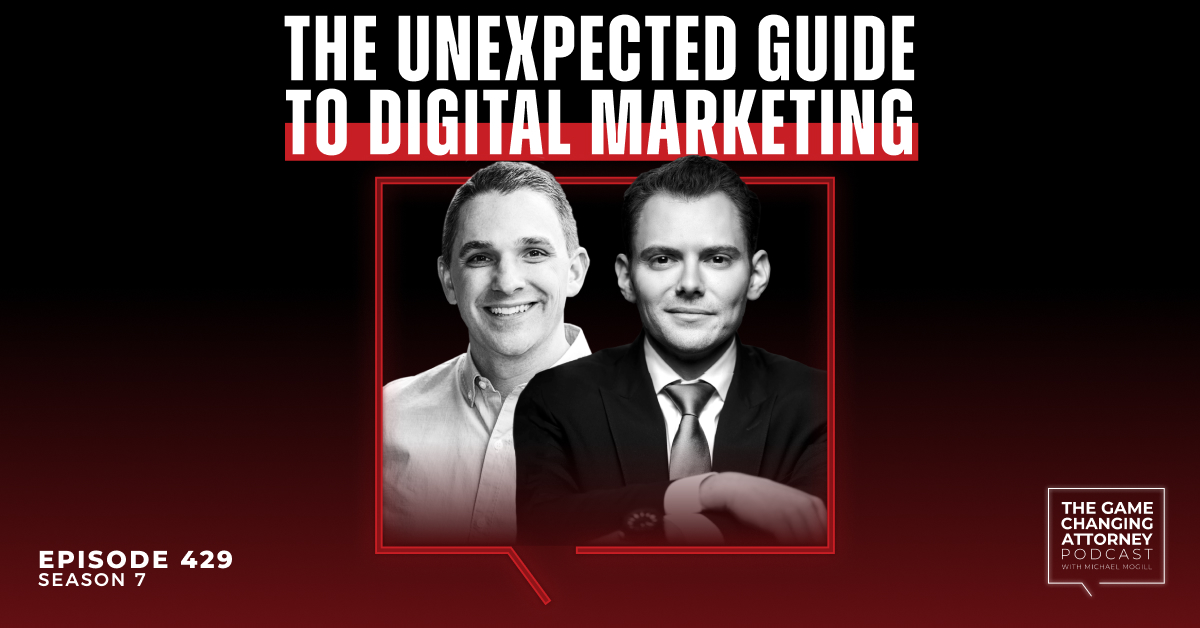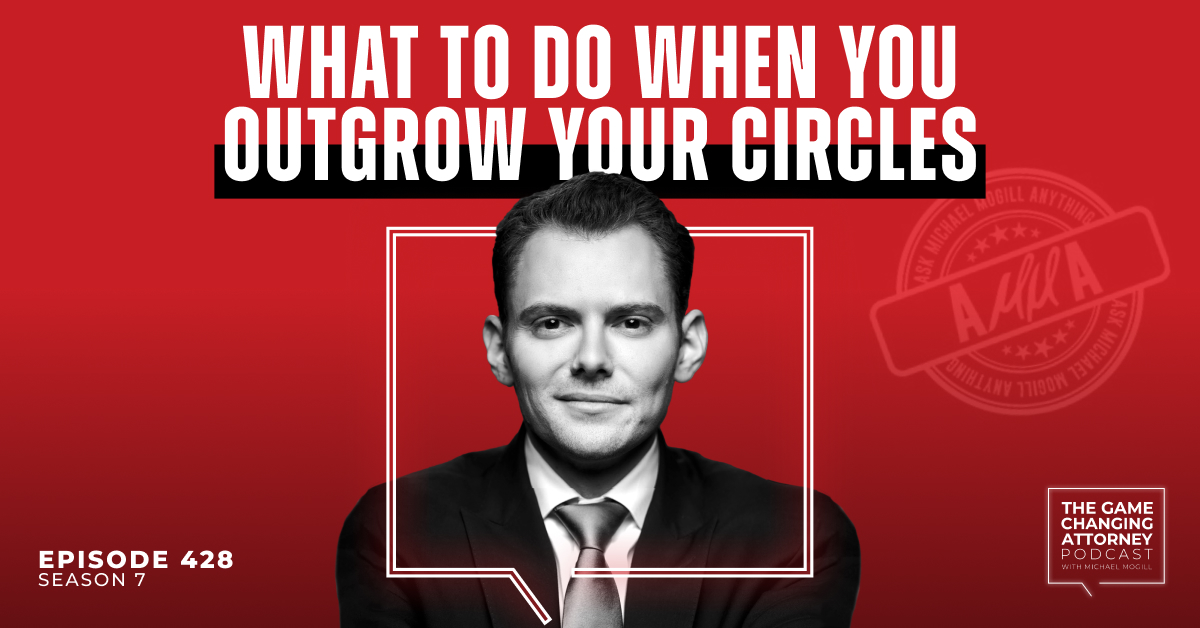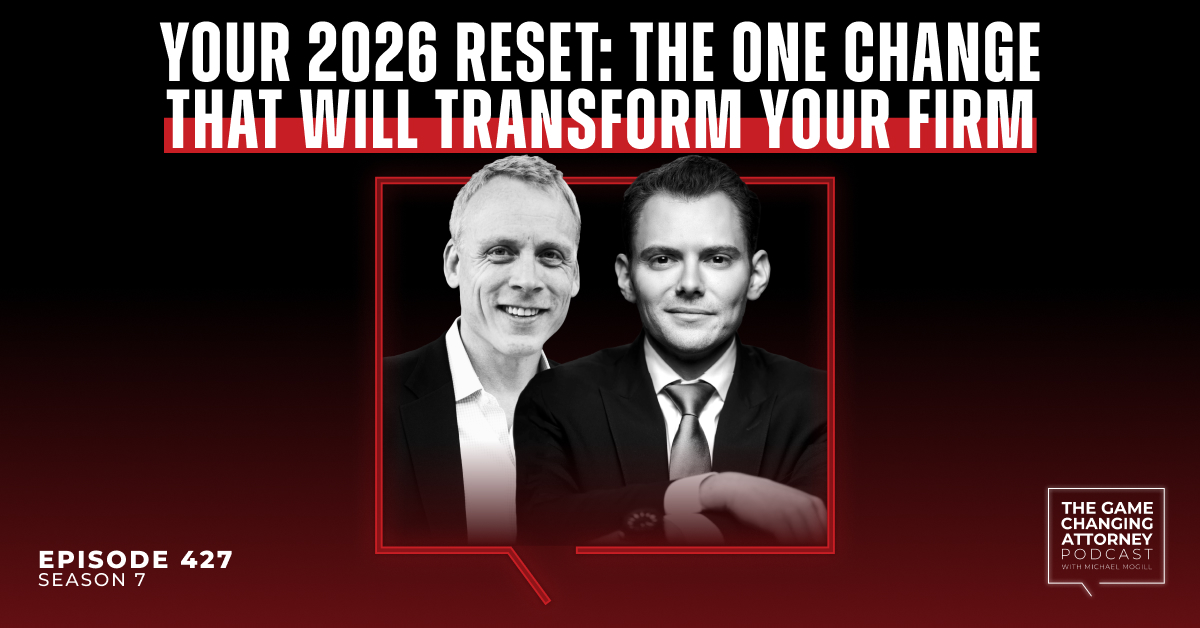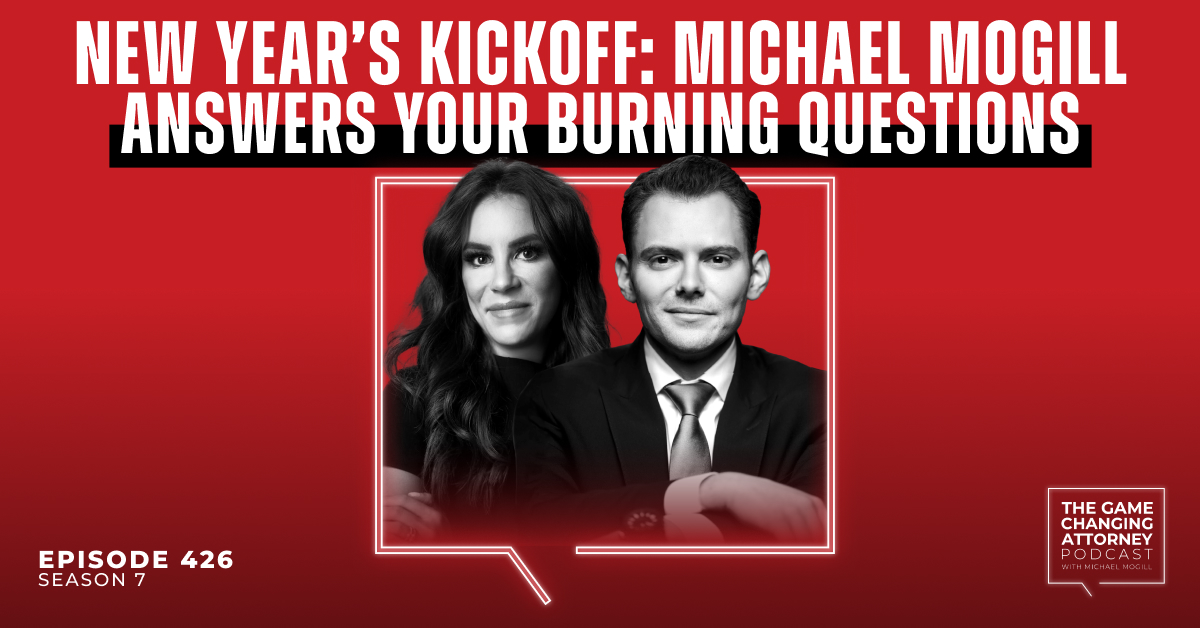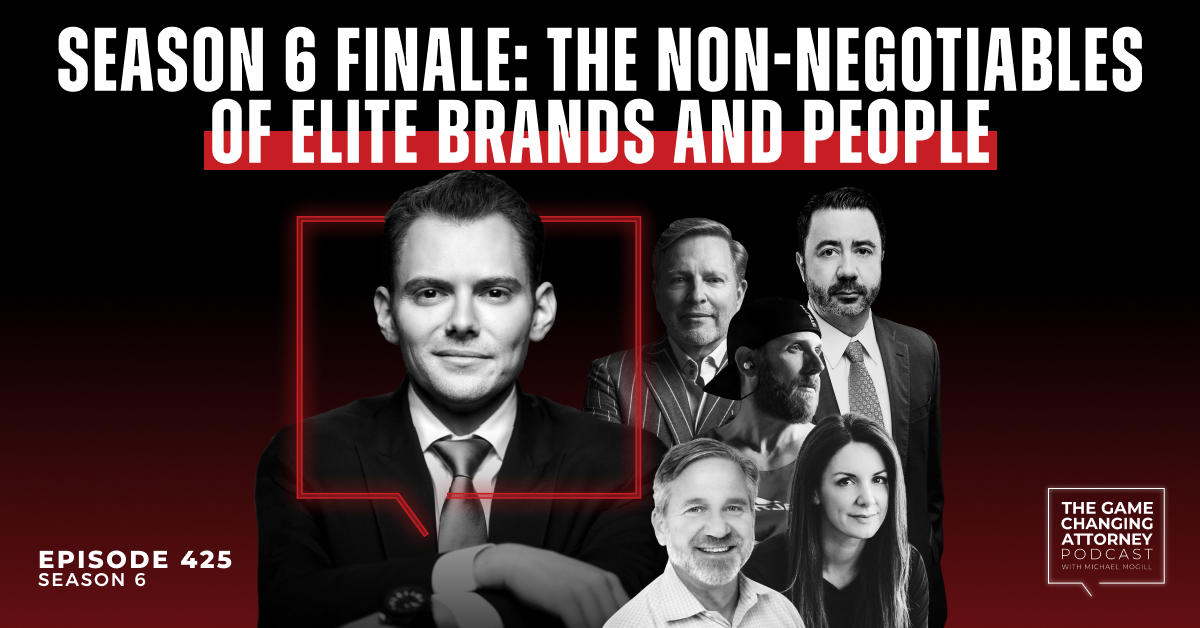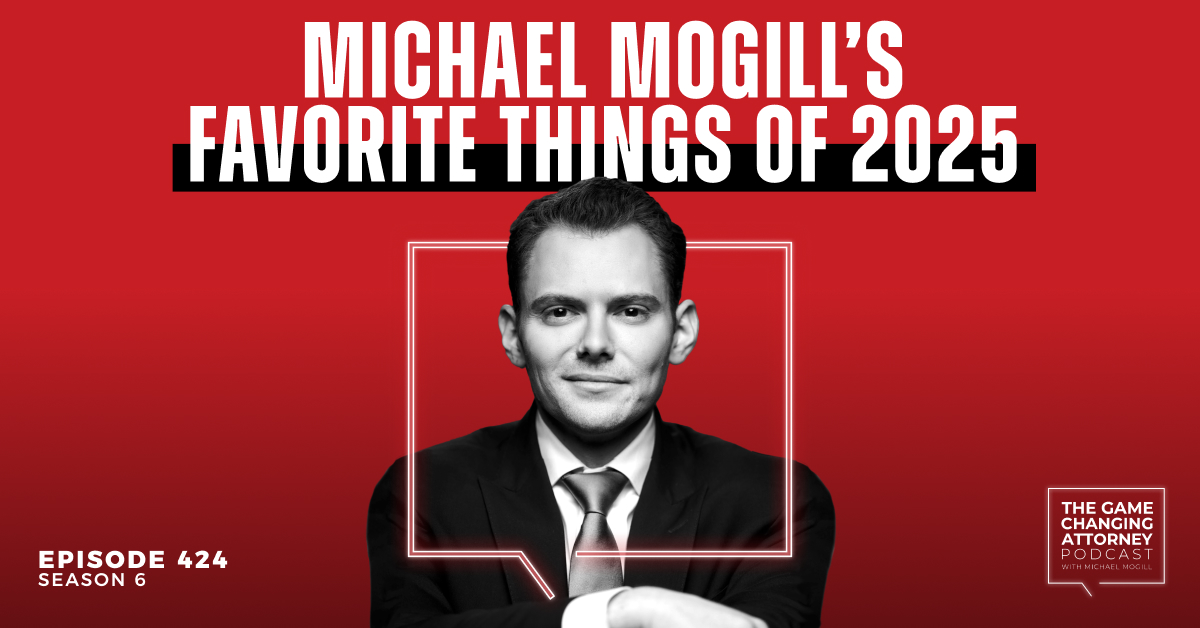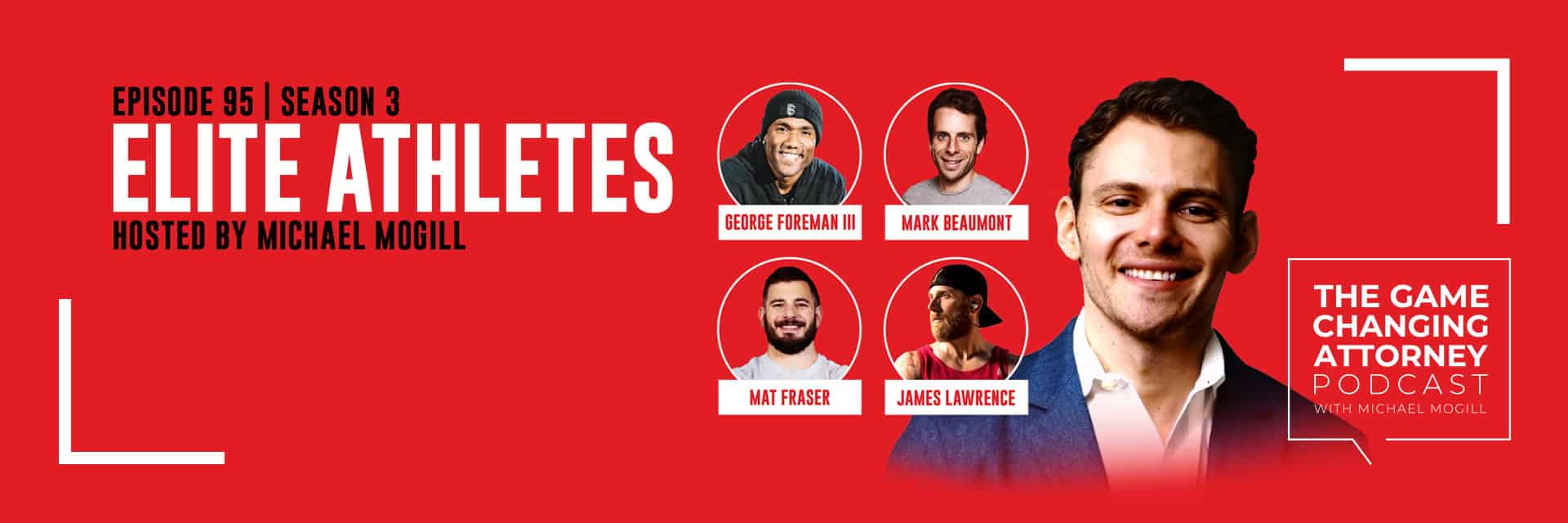
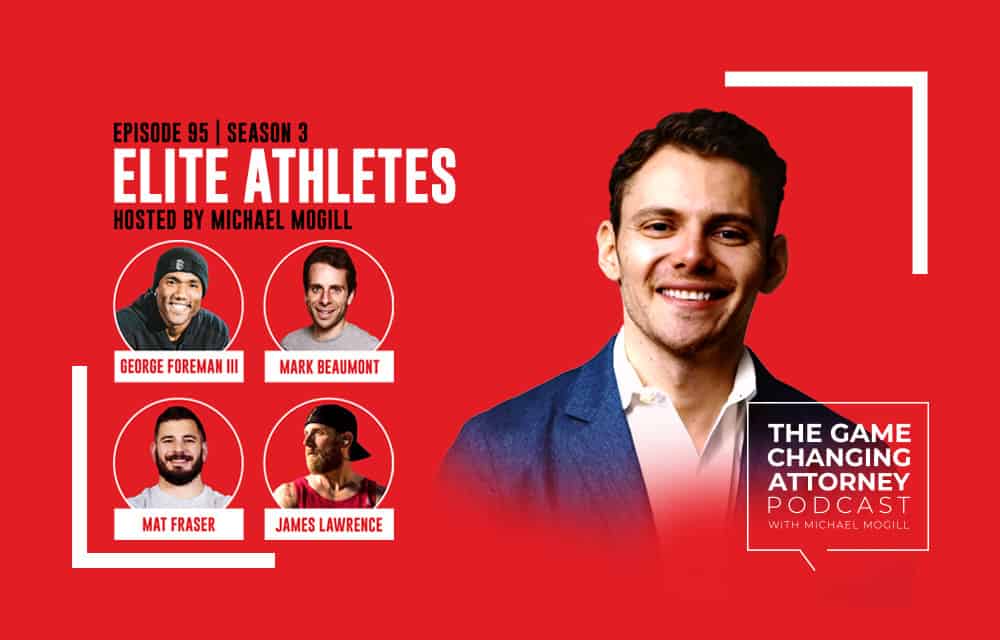
Episode 95 — The Mindsets of Champions: Best of Elite Athletes
On this episode of The Game Changing Attorney Podcast, Michael sits down with four elite athletes who have unwavering commitment to honing their craft. Though we tend to view professional athletes as larger than life, many of their biggest challenges and greatest achievements mirror what attorneys go through every day in the office, the courtroom, and even behind closed doors at home.
George Foreman III, Mark Beaumont, Mat Fraser, and James Lawrence all share their stories on where their drive comes from and the effort they put into becoming the best — with no excuses.
These unforgettable conversations cover:
- Planning, preparing, and executing on goals that seem larger than life
- The importance of being in the place mentally, physically, and emotionally before taking on any task
- Sacrificing some of life’s luxuries in order to be successful
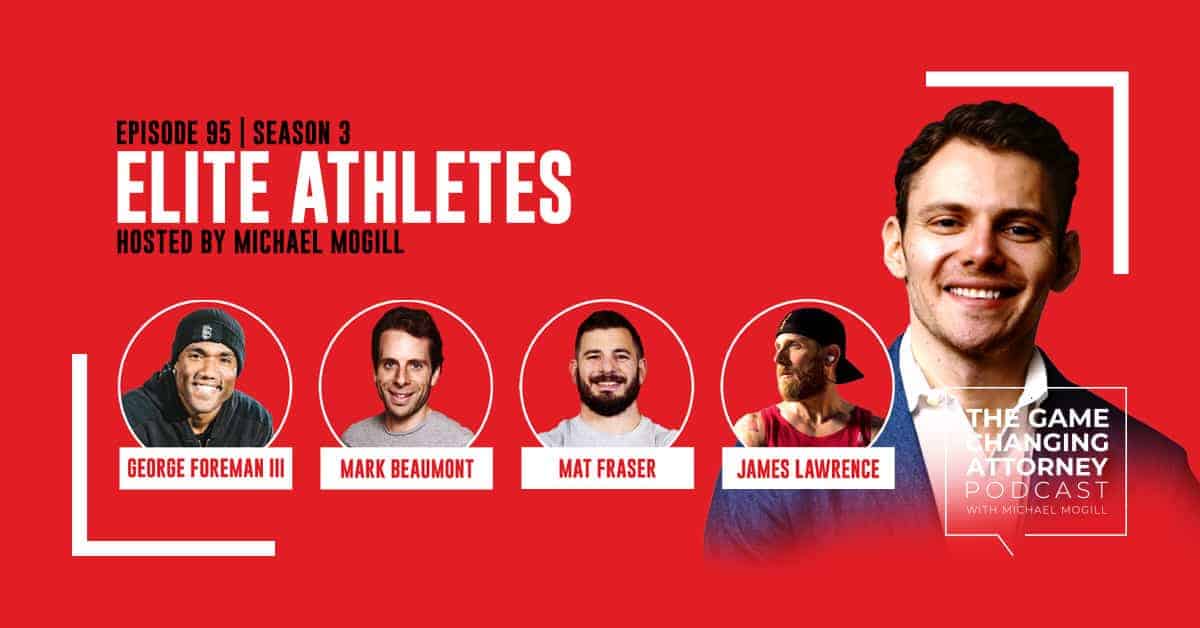
Listen & Subscribe
Show Notes:
George Foreman III
It’s all in the mind. “When you’re trying to train your brain — assuming you’re hydrated, rested, and in a safe place — you have to push the body to a place where you can only move forward with the mind.”
Always be prepared. “Take your losses in the preparation. I won those fights, but the reason I won those fights is because I took my losses in the gym. I took my losses in the morning when I was running. All my losses were in preparation, and the more I took my losses there, the more likely that I was prepared for the stuff you can’t prepare for. You have to make adjustments, but you need competence to make adjustments.”
Test everything to find what works best. “Life is about moments and triggers. Boxing is very much like that, too. I liken it to dealing with an opponent. Once you hop in the ring, especially if you’re evenly matched, you can’t just go out there and do what you’ve got to do. You have to make adjustments. The fight is won by testing different techniques, styles, and strategies, much like you would in any business. You tweak what you can and figure out what works.”
Mentality over matter. “I think the ability to not get tired, to recover when you try things that maybe didn’t work, the ability to be resilient and get up off the canvas if someone knocks you down — all these things give you this ever-so-precious thing. It’s a privilege, thinking ability. I don’t care how smart you are, or how intelligent you are — if you can’t breathe in and say, ‘Let me take a break. Let me sit in here, defensively, and think about what I want to do. Let me try this. That didn’t work, so try something else.’ If you can’t sit and do that and then remember what worked and optimize on top of it because you’re tired, discouraged, scared, or insecure because you didn’t prepare — if you can’t walk in every round of that fight and have your thinking ability, then you’re just not going to win. It doesn’t matter how smart you are.”
Mark Beaumont
A fulfilling childhood. “I had quite the alternative upbringing. I didn’t socialize, wasn’t in clubs, and didn’t even watch television. I guess what I did have from a very early age was a real sense of self and independence because guess what? I was working on a farm and had a great work ethic. There were 60 goats to milk, 13 horses to muck out, 200 laying hens to collect eggs from — there was a farm to run. I spent most of my time being physical and working outside.”
Oh, the places you’ll go. “Adventure sport for me has always been more about wild places and journeys than about performance. It’s never really been about beating anyone. It was always just about efficiently crossing landscapes. I’ve taken that to the extreme by breaking the world records for cycling the length of Africa, going from Alaska to Tierra Del Fuego, and climbing the highest mountain peaks in the Americas. It was always more about great journeys and wanderlust of travel than being a performance athlete.”
How far are you willing to take it? “Anyone can enjoy ultra endurance and adventure — young, old, male, female. It’s more about your life experience, your resilience, your ability to suffer, and deprivation. It’s about the overall toolkit — not just how good you are today, but how good will I be tomorrow, next week, or even next month?”
Every second matters. “I’m scared of merely existing. I don’t like the idea of just being a number, but that’s not an ego statement. I like making time count. I like doing significant things for my own sense of purpose and impact in the world with my friends, family, community, and work. I like to create stuff that really punctuates time. Life is about creating memories.”
Be your biggest supporter. “You’ve got to have a sense of independence to be able to do these things. I look at my kids, and the only thing I hope is that I can give them a sense of independence. It’s important to be able to fit in, but maintain the independence of mind to do things you’re passionate about. That independence often gets squeezed out of kids at school, whereas it becomes your greatest superpower in adult life.”
Matt Fraser
Hindsight is 20/20. “Looking back now, I am so thankful that I came in second place twice in a row. If I hadn’t, I wouldn’t have changed my habits. If I had won in 2015 while eating terribly and not working hard, I would have continued those bad habits. I would have been rewarded for cutting corners and continuing to do them. Getting my a** kicked in 2015 made me either dedicate everything to CrossFit or just go away.”
Stop the what-ifs. “After college, I decided to go all-in on CrossFit. I made the call that I was going to do one year where there were no what-ifs. What if I wasn’t distracted by a girlfriend? What if I had a better sleep schedule, a better diet, a better training regimen? I decided to live one year without a single sacrifice and see what the results are. If I didn’t get the results I wanted, then I could go back to those other things. But I won. After a year of that dedication, I won the world championship by the largest margin of victory ever. And it was all worth it. It was great. I set up my life so that there was as little risk as possible.”
You can only go up when you hit the bottom. “Having your back against the wall is a very freeing feeling. You’re already failing. You can’t get worse. Swing for the fences and try to connect and knock it over the fence.”
Building healthy habits. “I don’t think my dominant performance can boil down to any one thing. There was a whole laundry list of things that I was doing, and not a single one of them on their own would have made a noticeable difference. But when you start accumulating dozens of these different habits over the years, they start to add up. It all came from a coach that I had early on who told me that my training is not special. Everyone is doing what I’m doing in the gym. Everyone’s doing hard rowing intervals or squatting heavy, so I needed to find the 1% gains elsewhere that they’re not doing. So I tried finding those little areas, like taking my sleep more seriously than anybody else. I set up my life so that I didn’t have to think about anything outside of the gym. If you do one of those things for one day, you won’t notice a difference, but if you’re doing 30 or 40 of these things over multiple years…that’s when you start setting records. I woke up with one goal and one goal only: to be the best competitor there ever was.”
James Lawrence
Hope is all we have. “Ultimately, we discovered that through speaking around the world, our story is giving people hope. If that’s the result of our suffering and sacrifice, I’m all-in. Helping people get out of their own way and to have hope on their journey is incredibly meaningful.”
Where your mind goes when you’re competing. “Daydreaming is super important. You listen to educational tools like podcasts, or you run into bursts of energy with upbeat music. Sometimes you just want it to be quiet and plan your future. Your mind can do a lot of different things, and I would use it as an opportunity to multitask to educate myself and learn more.”
Be true to yourself. “Before anybody starts any big project, I think you should really sit down and figure out, ‘Okay, what’s my ethos, what are my core values, and what do I stand for?’ And then really commit and buy into those statements. Then every question you have on a tough journey becomes very easy to answer because you just revert back to what your ethos is and what you stand for.”
Healthy mind, healthy body. “In order for our bodies to be healthy, we have to stress them — same thing with our minds. You have to stress your mind in order for it to be a healthy functioning part of who we are, and the easy route is not always the best way to go. I’ve got two ways to go here. This one’s going to challenge me a little bit more. I think I’m going to intentionally choose that route so that I can develop, grow, and progress.”
EPISODE RESOURCES & REFERENCES
George Foreman
Boxing
Floyd Mayweather
Michael Jordan
LeBron James
Kobe Bryant
Sugar Ray Robinson
Scotland
Braveheart
Alaska
Tierra del Fuego
CrossFit
CrossFit Games
IRONMAN Competition
Connect with Michael
- Text directly at 404-531-7691
